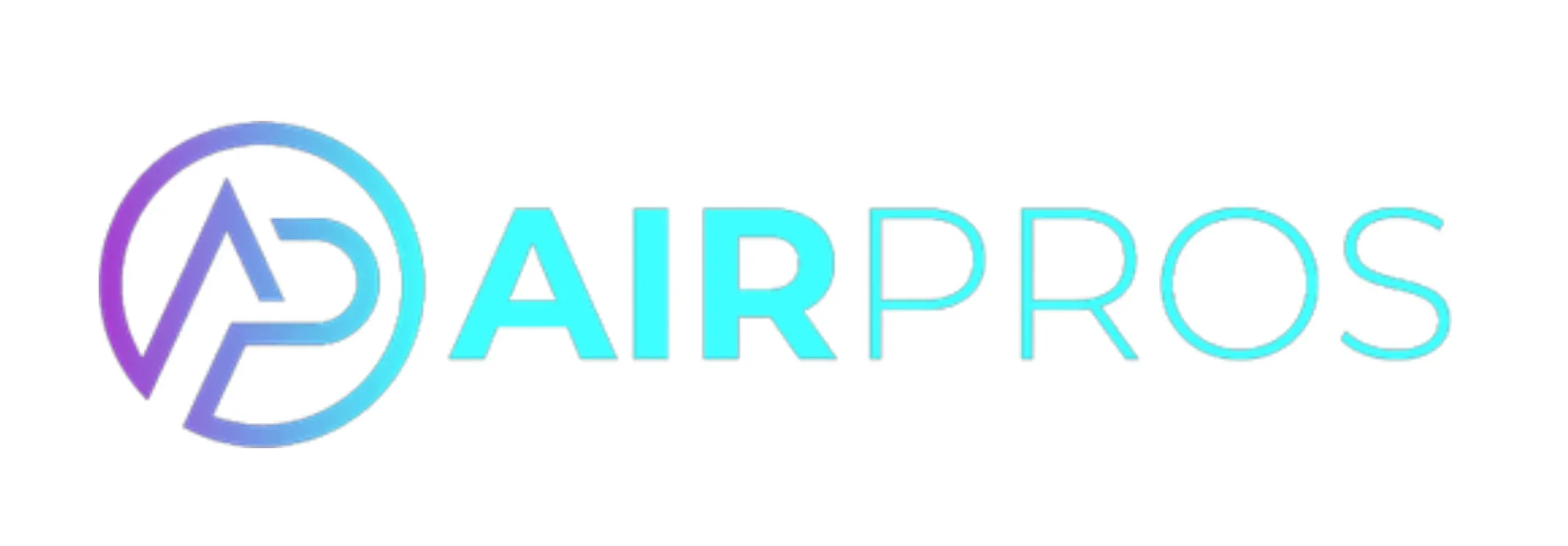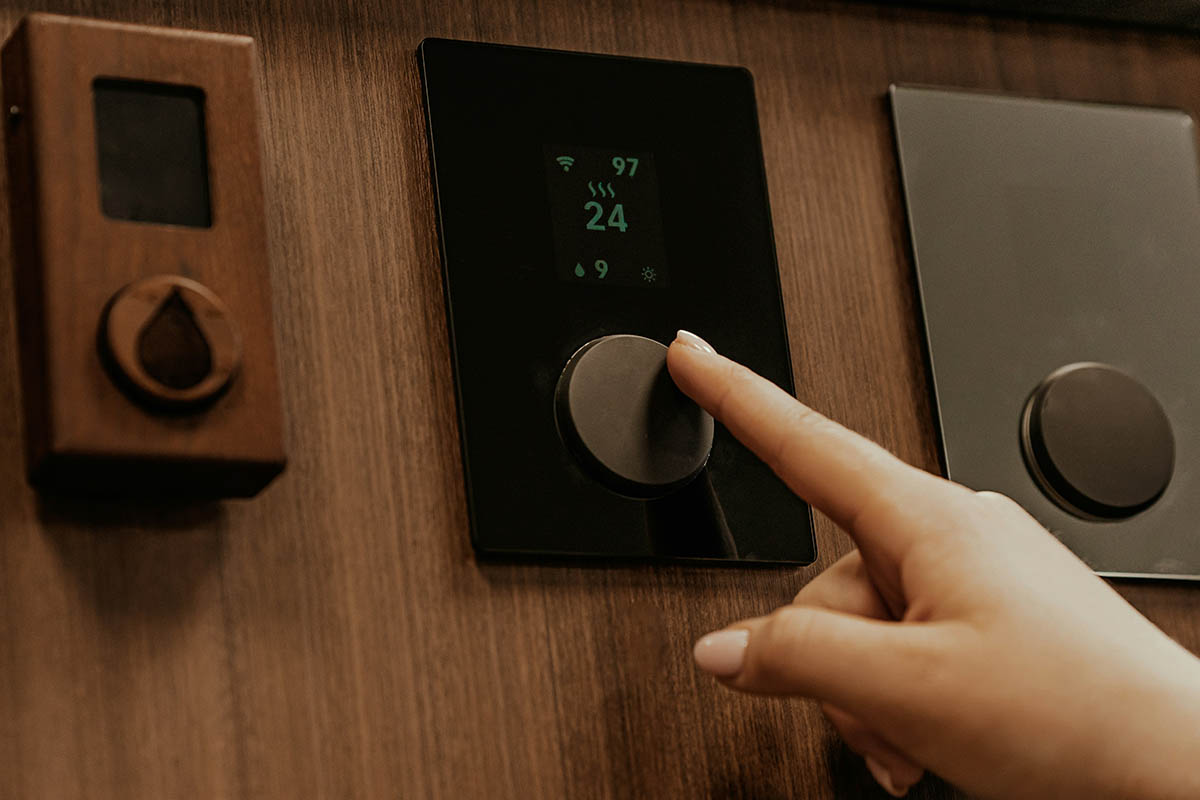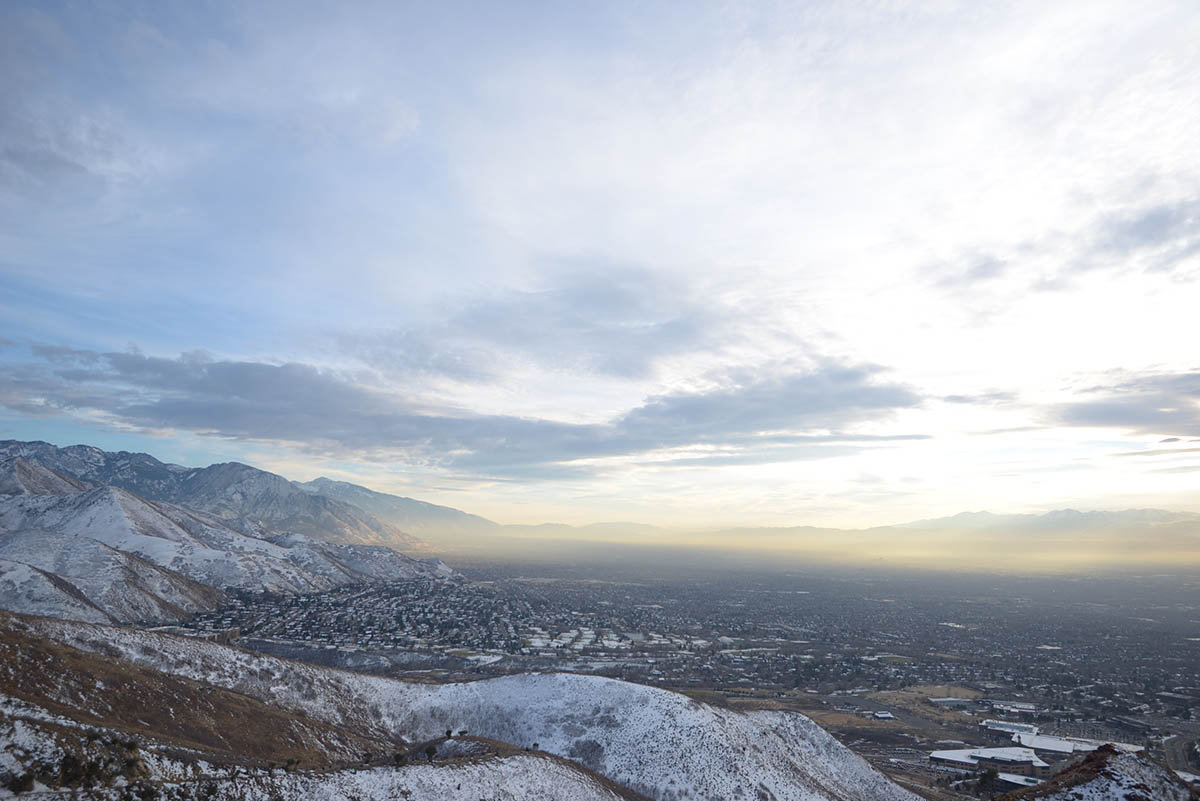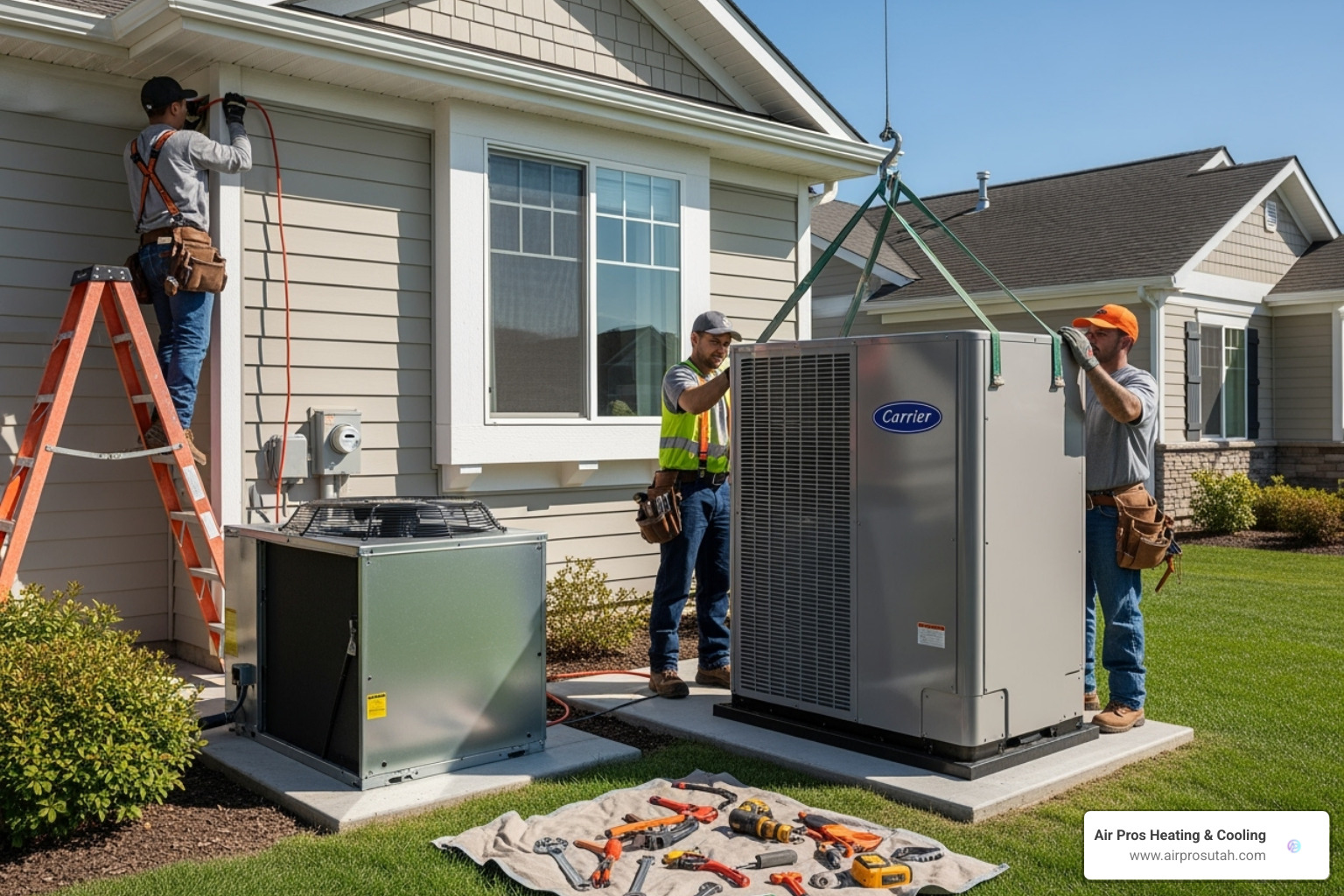
The Real Deal on Heat Pump Replacement Prices
Why Understanding Heat Pump Replacement Costs Matters
The cost of replacing a heat pump typically ranges from $6,000 to $25,000. This significant investment covers your home's year-round heating and cooling, so understanding the costs is crucial, especially if your unit is over 10 years old and needs frequent repairs.
Quick Cost Breakdown:
- Equipment (Air-Source): $4,500 - $8,000
- Complete Installation: $6,000 - $15,000
- High-Efficiency Models: Can exceed $20,000
- Labor: $2,000 - $8,000
The sticker shock is real, as prices have risen steeply in recent years. However, knowing what drives these costs—like home size, efficiency ratings, and necessary upgrades—empowers you to make a smart decision.
I'm Alex Wiltz, founder of Air Pros Utah Heating & Cooling. With years of HVAC experience, I've helped many homeowners steer the cost of replacing a heat pump to find the right solution for their needs.
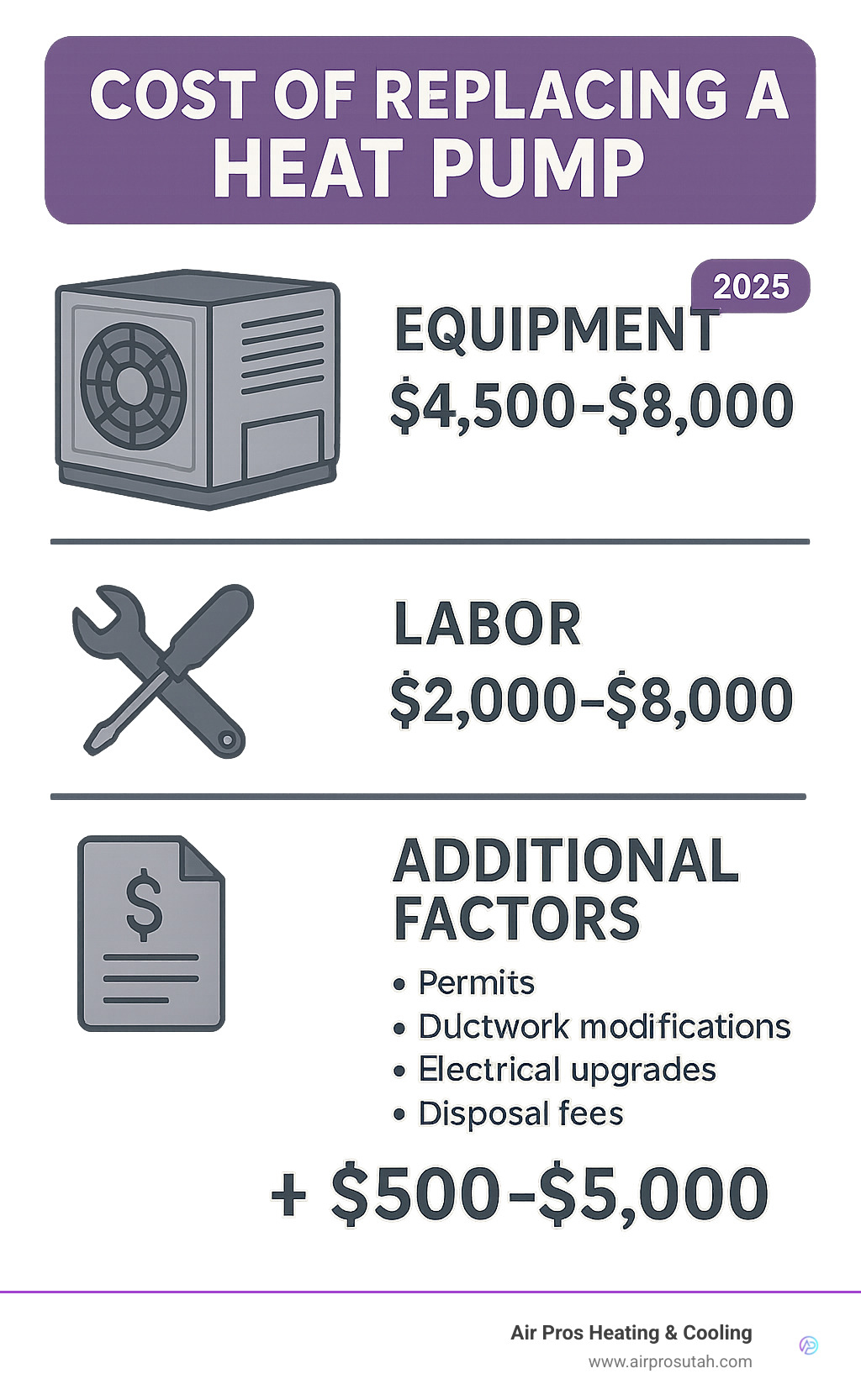
Simple cost of replacing a heat pump glossary:
- cost to install heat pump and air handler
- heat pumps installed
- how to install a heat pump air conditioner
Understanding the Total Cost of Replacing a Heat Pump
Let's break down what you're paying for with a cost of replacing a heat pump quote. While numbers from $6,000 to $25,000 can seem overwhelming, there's a clear logic behind them. The national average is around $6,920, but your final cost depends on several factors. You're not just buying an outdoor unit; you're investing in a complete system that includes indoor components, professional installation, and removal of your old equipment.
If you're weighing a heat pump against a traditional furnace for your Utah home, our comparison guide can help: Heat Pump vs Furnace: What's Right for You?
The average cost of replacing a heat pump
Most homeowners in the Salt Lake City Valley pay between $5,290 and $8,620 for a standard efficiency heat pump system (2.5 to 3 tons). For larger homes (1,500 to 2,500 sq. ft.), a complete system installation can range from $17,000 to $23,000. This jump is due to more powerful systems and the potential for more complex integration work.
High-efficiency models can push the price over $20,000. These premium units cost more upfront but deliver superior performance and long-term energy savings. The complexity of the installation, such as needing electrical or ductwork modifications, will also influence the final price.
For more details on the installation process, visit our Heat Pump Installation page.
What's included in a standard replacement quote?
A professional quote for the cost of replacing a heat pump should be all-inclusive. It typically covers:
- The outdoor unit (condenser) and matching indoor unit (air handler or coil).
- A new thermostat, often a smart model for better control.
- New refrigerant lines to connect the system.
- Professional installation labor, including placement, connections, and testing.
- Removal and disposal of your old system.
- Delivery, worksite prep, and setup time.
We identify any needs for extra work, like electrical or ductwork modifications, upfront and provide a clear, written estimate before work begins.
When to replace vs. repair your heat pump
Deciding whether to repair or replace can be tough. Here are the key factors to consider:
- System Age: Heat pumps last 10 to 15 years. If yours is approaching this age and needs a major repair, replacement is often the smarter financial choice.
- Frequent Breakdowns: If you're calling for repairs multiple times a year, your system is likely nearing the end of its life. A major component failure, like a compressor ($900 - $2,900 to fix), is a strong signal to replace.
- Rising Energy Bills: An aging, inefficient heat pump works harder and costs more to run. If your utility bills are climbing, your old system may be the cause.
A helpful rule: Multiply the repair cost by the system's age. If the result is over $5,000, replacement is generally recommended. For example, a $600 repair on a 10-year-old unit ($600 x 10 = $6,000) suggests it's time to replace.
If you're considering a repair, our Heat Pump Repair team can provide a cost-effective assessment.
Key Factors That Determine Your Final Price
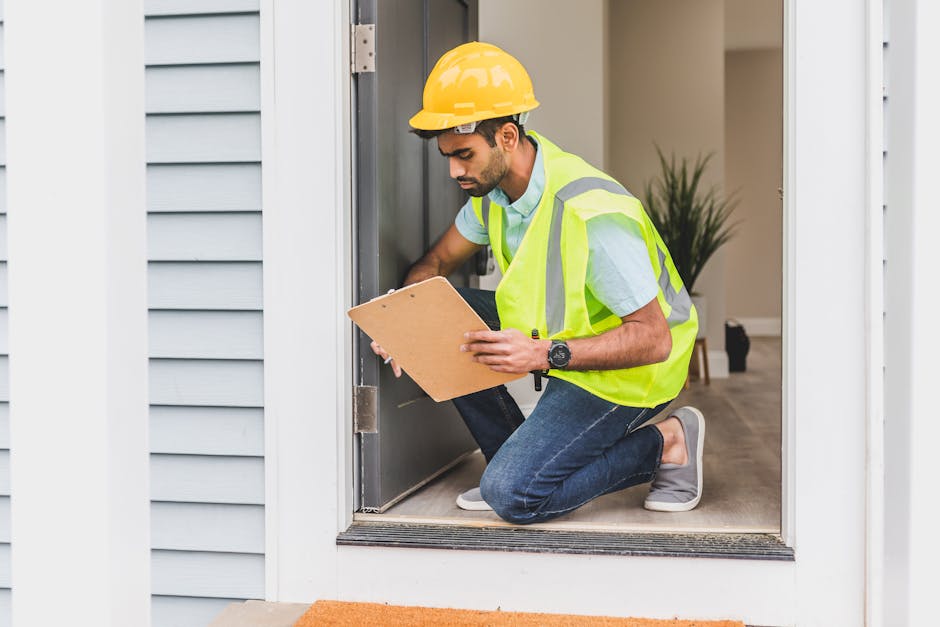
An estimate for the cost of replacing a heat pump isn't a random number; it's based on a careful analysis of your home. We start with a Manual J load calculation, a detailed assessment of your home's unique heating and cooling needs. This considers factors like insulation, window types, home orientation, and occupancy to ensure we recommend a perfectly sized system—not too big and not too small.
How home size affects the cost of replacing a heat pump
Bigger homes need bigger, more powerful heat pumps, which cost more. System capacity is measured in "tons" (1 ton = 12,000 BTUs), which indicates how much heat it can move. A 1,000-1,500 sq. ft. home might need a 2-ton unit, while a 2,400-3,300 sq. ft. home could require a 5-ton unit. However, a well-insulated home may need a smaller unit than a drafty one of the same size. This is why a professional assessment that looks beyond just square footage is crucial for getting the right size and price.
For government guidelines on HVAC sizing, see: How to Size HVAC Systems Correctly.
The role of efficiency ratings (SEER2 & HSPF2)
Think of efficiency ratings like a car's MPG—higher numbers mean lower operating costs. For heat pumps, SEER2 (Seasonal Energy Efficiency Ratio 2) measures cooling efficiency, and HSPF2 (Heating Seasonal Performance Factor 2) measures heating efficiency. While high-efficiency models have a higher upfront cost of replacing a heat pump, they can deliver significant long-term savings on your monthly energy bills, often paying for the initial investment over the unit's lifespan.
These systems can be up to three times more efficient than the electrical energy they use. Learn more from government research: Government research on efficiency.
To protect your investment, regular maintenance is key: More info about Heat Pump Maintenance.
Installation quality and labor rates
Installation quality is as important as the equipment itself. A top-tier heat pump will underperform if installed incorrectly. That's why working with qualified, experienced technicians is essential. Labor costs are a significant part of the total price, typically ranging from $2,000 to $8,000 in the SLC Valley, depending on project complexity. Factors like system accessibility and necessary infrastructure modifications affect the final labor cost. Investing in a reputable company ensures your system operates efficiently, lasts longer, and maintains its warranty.
For insights into professional installation, visit: More info about Heat Pumps Installed.
Additional system upgrades and repairs
Sometimes, a heat pump replacement requires other upgrades to ensure optimal performance. These can add to the total cost but are often necessary:
- Ductwork Inspection and Sealing: Leaky ducts can waste up to 30% of conditioned air. Sealing or repairs might be needed, typically costing $2,500 to $5,000.
- Electrical Panel Upgrades: Modern heat pumps may require more power than older systems, necessitating an upgrade for $600 to $1,500.
- Smart Thermostats: An upgrade from a basic model can add $90 to $600 but improves efficiency and convenience.
- Zoning Systems: For room-by-room temperature control, zoning can add several thousand dollars but delivers personalized comfort and energy savings.
Comparing Costs by Heat Pump Type
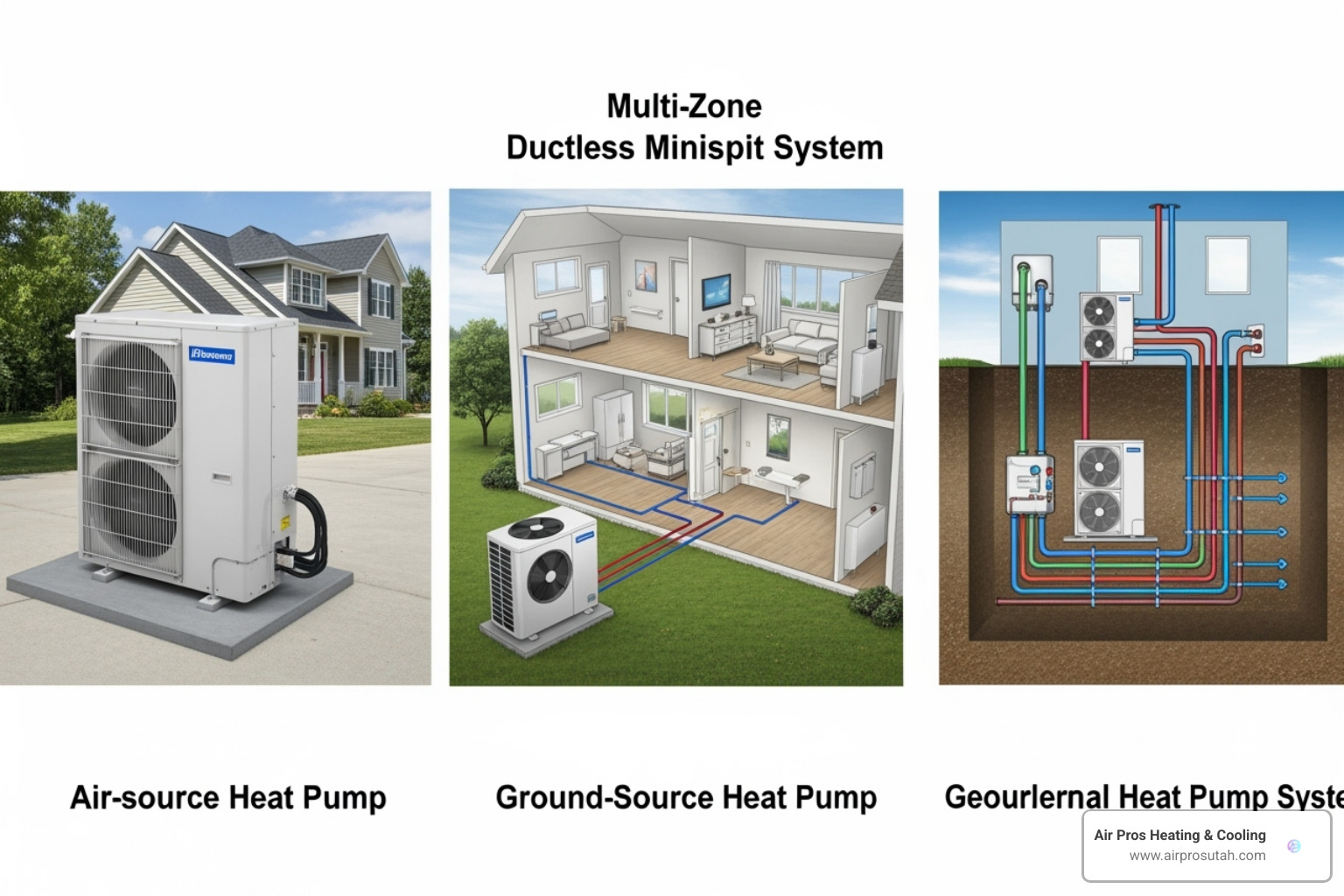
The type of heat pump you choose significantly impacts the cost of replacing a heat pump. Your home's existing infrastructure, Utah's climate, and your comfort goals will determine the best fit. Let's break down the three main options.
Air-Source Heat Pumps
These are the most common systems installed in the SLC Valley. They work by transferring heat between your house and the outside air. They come in two main styles:
- Split Systems: The most popular choice for homes with existing ductwork, featuring an outdoor unit and an indoor air handler. Installed costs typically run from $5,200 to $14,500.
- Packaged Units: An all-in-one solution where components are in a single outdoor cabinet. These are great for homes with limited indoor space and cost between $5,700 and $12,000 installed.
Air-source systems offer a great balance of cost and year-round comfort for our moderate climate.
Ductless Mini-Split Heat Pumps
Ductless mini-splits are a game-changer for homes without ductwork or for homeowners seeking room-by-room climate control. An outdoor unit connects to one or more sleek indoor units, offering incredible energy efficiency without bulky ductwork.
- Single-Zone Mini-Splits: Perfect for a single room or area, these systems cost between $1,500 and $5,000 installed.
- Multi-Zone Mini-Splits: One outdoor unit powers several indoor units, each with its own thermostat. This allows for customized comfort throughout the house. Costs range from $2,900 to $17,800 installed, depending on the number of zones.
At Air Pros, we specialize in these systems due to the personalized comfort and efficiency they provide. Learn more here: More info about Heat Pump.
Geothermal Heat Pumps
Geothermal systems are the pinnacle of heating and cooling efficiency. They use the stable temperature of the earth, via buried loops, to heat and cool your home. The underground loops can last for 50+ years, making it a long-term investment.
However, this performance comes at a price. The cost of replacing a heat pump with a geothermal system ranges from $9,500 to $25,000, and can exceed $30,000. The high cost is due to the extensive excavation required. Despite the upfront investment, geothermal systems offer the lowest long-term energy bills and are an excellent choice for those planning to stay in their home for many years.
Maximizing Value: Savings, Rebates, and Long-Term Benefits
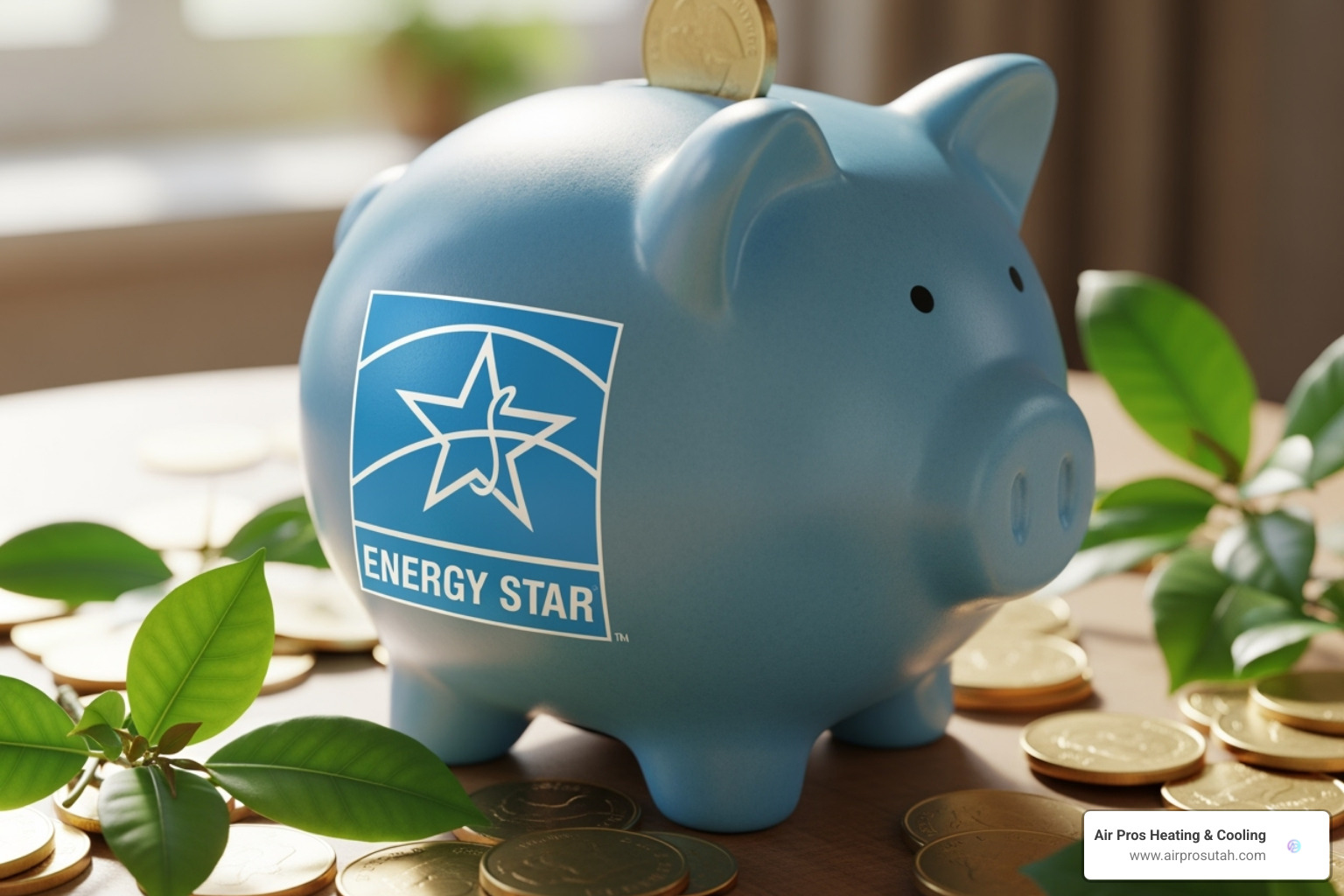
While the initial cost of replacing a heat pump can be high, it's best viewed as a long-term investment in your home's value and comfort. The key is to lower the upfront cost and maximize the long-term benefits.
Are there ways to save money on heat pump replacement?
Yes! You can significantly reduce the cost if you know where to look. The landscape for incentives has never been better.
- Federal Tax Credits: The Inflation Reduction Act offers a tax credit of up to 30% of the project cost, capped at $2,000 for qualifying air-source heat pumps. For geothermal, the 30% credit has no cap.
- State and Local Rebates: Many Utah counties and cities offer rebates to encourage energy-efficient upgrades.
- Utility Company Incentives: Local utilities often have programs to help customers upgrade to high-efficiency models, reducing strain on the grid.
- Off-Season Installation: Scheduling your replacement during the spring or fall can sometimes lead to 10-20% lower pricing.
- Proper Sizing: Ensuring your system is correctly sized for your home is the best way to guarantee long-term savings on energy bills.
Finding available rebates and tax credits
Navigating incentives is worth the effort. The federal tax credits from the Inflation Reduction Act are a major opportunity, potentially saving you thousands. We actively help our Utah customers identify all available local and utility programs to maximize their savings.
For the most current information, check these resources:
- Federal Tax Credits: Federal tax credit information from ENERGY STAR
- State/Local Incentives: Database of State Incentives for Renewables and Efficiency
The benefits of upgrading to a new heat pump
Beyond the initial cost, a new heat pump is an investment in comfort, efficiency, and peace of mind. Key benefits include:
- Improved Energy Efficiency: Modern heat pumps use 40-60% less electricity than conventional electric heaters, dramatically lowering your energy consumption.
- Lower Utility Bills: Homeowners often save $300-$1,000+ annually. These savings can offset the initial investment over the system's life.
- Improved Home Comfort: New systems, especially variable-speed models, provide consistent temperatures without hot or cold spots.
- Better Dehumidification: Heat pumps are excellent at removing humidity, making your home feel more comfortable during Utah's summers.
- Quieter Operation: Modern units are significantly quieter than older models.
- Increased Home Value: A high-efficiency heat pump is an attractive feature for potential buyers, potentially boosting your home's value.
Frequently Asked Questions about Heat Pump Replacement Costs
After helping hundreds of SLC Valley homeowners, we've compiled answers to the most common questions about the cost of replacing a heat pump.
How long does a heat pump typically last?
A heat pump's lifespan is generally 10 to 15 years. Factors like climate, usage, and maintenance quality play a significant role. In Utah, where systems work year-round, lifespans may be closer to the 10-12 year mark. While regular service can extend its life, efficiency naturally declines with age, leading to higher energy bills.
Is a more expensive, high-efficiency heat pump worth it?
For most homeowners, yes. While the upfront cost of replacing a heat pump is higher, high-efficiency models can save $300-$1,000+ annually on energy bills, especially with Utah's hot summers and cold winters. The payback period from these savings is often shorter than the unit's lifespan, meaning you save money in the long run. These models also provide superior comfort and often qualify for the best rebates and tax credits.
Can I replace just the outdoor unit of my heat pump?
It is strongly recommended to replace both the indoor and outdoor units at the same time. HVAC systems are designed as "matched systems" where components work together for optimal performance. Mismatching an old indoor unit with a new outdoor one can lead to:
- Reduced Efficiency: The system won't achieve its advertised SEER2/HSPF2 ratings, costing you more in energy.
- Premature Failure: Incompatible components can cause excess wear and tear, leading to costly repairs.
- Voided Warranties: Most manufacturers will not honor the warranty on new equipment if it's paired with an old, mismatched component.
Get a Clear and Accurate Replacement Quote
We've covered the key factors that influence the cost of replacing a heat pump, from the wide price range of $6,000 to $25,000 to details like home size, efficiency ratings, and system type. The most important takeaway is that there is no one-size-fits-all price, which is why a professional assessment is essential.
The bottom line: Replacing your heat pump is a long-term investment in your home's comfort and efficiency. A quality system, expertly installed, will keep your family comfortable for the next 10 to 15 years while providing lower energy bills and peace of mind.
At Air Pros Heating & Cooling, we provide honest assessments and fair pricing without high-pressure sales tactics. We specialize in ductless mini-split systems, which offer exceptional room-by-room temperature control and energy savings. Whether your old system is failing or you're ready for an efficient upgrade, we're here to help you steer the process with confidence.
Ready for a clear quote custom to your home? Contact our team for a Heat Pump Installation consultation. We'll explain your options and provide transparent pricing for your budget.

